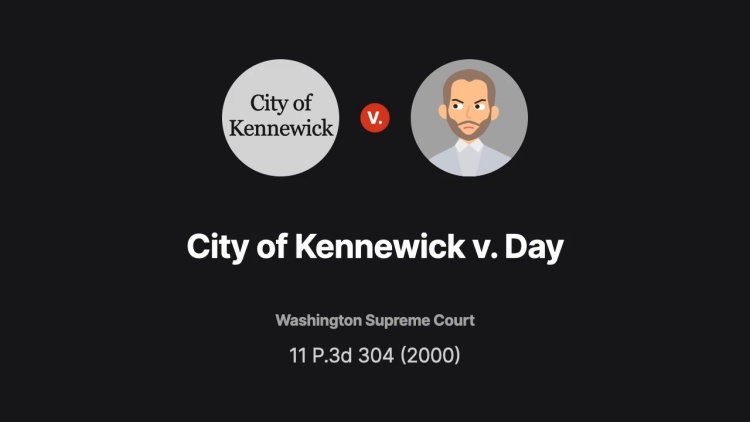City of Kennewick v. Day
Washington Supreme Court
11 P.3d 304 (2000)
- Written by Angela Patrick, JD
Facts
Doug Day (defendant) was arrested on suspicion of driving while intoxicated. The arresting officer searched Day’s truck and found a marijuana pipe and some marijuana in an armrest. Day immediately denied any knowledge of the drug materials and said that he had just picked up his truck from a repair shop. A blood-alcohol test showed that Day had not been intoxicated. However, Day was charged with possessing drug paraphernalia that he either had used or intended to use. At trial, Day presented evidence that (1) an auto-repair shop had worked on his truck for four months right before the arrest, (2) a shop employee that had worked on Day’s truck had been fired for suspected drug usage, and (3) a previous shop customer had complained about finding drug paraphernalia in the customer’s car after having it at the shop. Day attempted to introduce additional evidence that he had a reputation for not doing drugs in order to show that it was unlikely that he had used or intended to use the marijuana pipe. The trial court excluded the evidence as inadmissible evidence of past conduct. Day was convicted of possessing drug paraphernalia with intent to use it. Day appealed, arguing that the trial court should have allowed evidence of his reputation for sobriety. The superior court reversed the conviction, but the appellate court reinstated it. Day appealed to the Washington Supreme Court.
Rule of Law
Issue
Holding and Reasoning (Madsen, J.)
What to do next…
Here's why 907,000 law students have relied on our case briefs:
- Written by law professors and practitioners, not other law students. 47,100 briefs, keyed to 996 casebooks. Top-notch customer support.
- The right amount of information, includes the facts, issues, rule of law, holding and reasoning, and any concurrences and dissents.
- Access in your classes, works on your mobile and tablet. Massive library of related video lessons and high quality multiple-choice questions.
- Easy to use, uniform format for every case brief. Written in plain English, not in legalese. Our briefs summarize and simplify; they don’t just repeat the court’s language.





